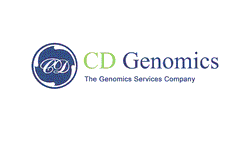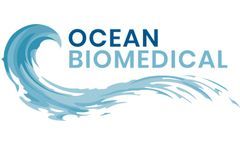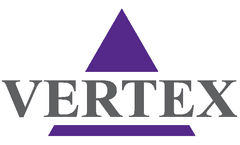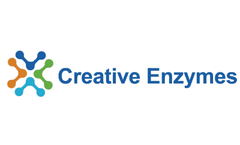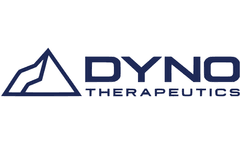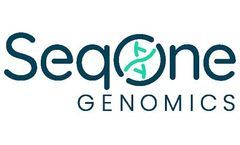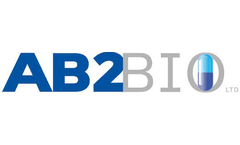Refine by
Genetic Mutation Articles & Analysis
22 news found
To address this challenge, CD Genomics has developed a comprehensive Mitochondrial Diseases Panel Sequencing service that enables researchers to accurately identify mitochondrial DNA and nuclear DNA mutations and obtain a comprehensive view of the patient’s genetic makeup. ...
Cancer is known to cause by the accumulation of harmful genetic mutations within cells. At present, the research on the mechanism of abnormal cell proliferation, differentiation, and carcinogenesis is mainly divided into three categories: activation of dominant transformation proto-oncogene through translocation and mutation, inactivation of ...
[i] The most common form of the disease is caused by a genetic mutation of the ABCA4 gene, ultimately leading to vision loss. ...
The human genome has approximately 180,000 exomes, which are approximately 30 Mb in length, and the majority of disease-causing mutations among monogenic genetic diseases have been reported to be concentrated in the exome region. ...
An estimated 10 percent of ALS is familial and caused by genetic mutations that are inherited. The 90%+ of sporadic ALS may be due to a combination of environment and genetic risk factors. ...
The severe loss of photoreceptor cells that occurs in this genetic degenerative disease leads to partial or complete blindness. At present, no effective treatment is available to restore vision once the photoreceptor cells have been lost. Over 100 genetic mutations are known to cause RP and all types of inheritance patterns are recognized. ...
Innovative Targets for Global Unmet Needs Oncology Ocean Biomedical’s novel target in oncology is Chitinase 3-Like1 (CHI3L1), a key regulator of many visceral tumors regardless of the genetic mutations that drive them. Ocean’s proprietary mono-specific and bispecific antibodies are the first to target CHI3L1. ...
The sickle gene is found in every ethnic group, not just among those of African descent; and in the United States an estimated 1-in-365 African Americans and 1-in-16,300 Hispanic Americans are born with SCD.1 The genetic mutation responsible for SCD causes an individual's red blood cells to distort into a "C" or a sickle shape, reducing their ability to transport ...
About APOL1-Mediated Kidney Disease APOL1-mediated kidney disease is a form of chronic kidney disease caused by mutations in the APOL1 gene. Approximately 100,000 people in the U.S. and Europe have two APOL1 genetic mutations and proteinuric kidney disease. People who inherit two mutations in the APOL1 gene have a course of ...
Gene therapy candidate has potential to address a large number of retinitis pigmentosa and Leber congenital amaurosis gene mutations with a single product Trial to start in Q1 2022 will enroll patients with mutations in NR2E3 or RHO genes MALVERN, Pa., Dec. 09, 2021 (GLOBE NEWSWIRE) -- Ocugen, Inc. ...
T-cell responses for each targeted mutation were assessed after 9 weeks of treatment with TG4050 and compared to baseline for the 4 patients for which evaluable samples were available. ...
The sickle gene is found in every ethnic group, not just among those of African descent; and in the United States an estimated 1-in-365 African Americans and 1-in-16,300 Hispanic Americans are born with SCD.1 The genetic mutation responsible for SCD causes an individual’s red blood cells to distort into a “C” or a sickle shape, reducing their ...
B.1.617.2 is characterized by spike mutations T19R, G142D, Δ157-158, L452R, T478K, D614G, P681R, and D950N. ...
Relying on its professional team and the most advanced technology, as well as high-quality products and services, it has won a good reputation all over the world Prolidase has an important role in recycling proline and collagen production. It is used to study mutations in the PEPD gene that cause prolidase deficiency. It is used to hydrolyze proteins with C-terminal proline or ...
For instance, the process of generating novelty to select from cannot be precisely controlled during an experiment, but rather occurs by random genetic mutations. With this approach, the traits of interest might simply be too rare to find with random variation. ...
Eighty percent of rare diseases are genetic in origin and result from a small number of genetic mutations. ...
Dr. Elizabeth Revesz has a unique background as an artist and sculptor. She was able to translate her precision, and her ability to see things in three dimensions, into a highly successful career in medicine. But once in the medical field, Dr. Revesz went further to find her true calling. “Medicine is great, but surgery is actually where I feel the most comfortable,” the physician ...
About the Pivotal Phase 3 Trial in Patients with Monogenic, Interleukin-18 Driven Autoinflammation due to NLRC4-MAS Mutation or XIAP Deficiency Recently, single point mutations in the NLRC4 gene have been identified. These genetic, gain of function mutations give rise to severe, life-threatening systemic inflammation associated ...
New research published online August 10 in the journal Nature Genetics found that a mutation-causing enzyme known at APOBEC3A (A3A) may be the main cause of mutations in certain cancers. ...
The final rule requires manufacturers and processors of 15 HPV chemical substances to conduct testing for environmental fate (including five tests for physical/chemical properties and biodegradation), ecotoxicity (in fish, Daphnia, and algae), acute toxicity, genetic toxicity (gene mutations and chromosomal aberrations), repeat dose toxicity, and developmental ...

